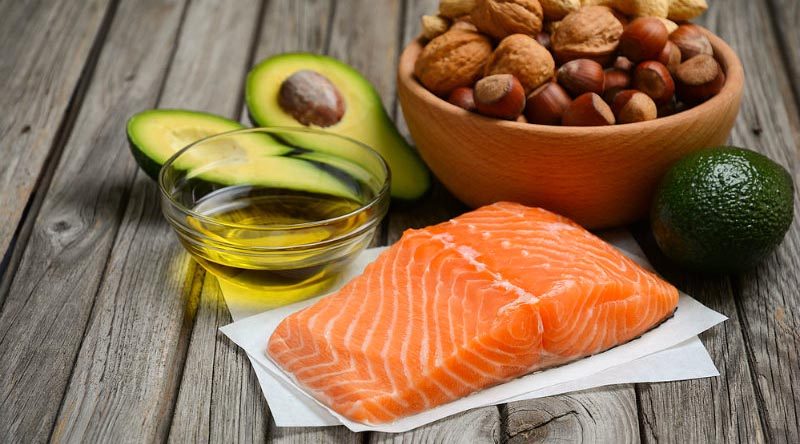Performance nutrition – understanding the basics for strong foundations
Share the post "Performance nutrition – understanding the basics for strong foundations"

Many people believe that there is one specific diet, training program or supplement concoction that will be the key to their success in sports performance or body composition goals. If this is you, I’m sorry to burst your bubble, but this simply is not the case.
Every individual differs in their health profile, sporting abilities, fitness and knowledge levels, eating habits, taste preferences, occupation, family commitments and personal goals. All of these factors need to be considered, so it’s erroneous to assume a ‘one-size-fits-all’ approach to nutrition when there are so many variables.
Individuals have the power to customise their own nutrition to improve physical fitness, performance and body composition through acquiring knowledge, trialling and adapting the practises that best suit and have a positive effect on each of the above mentioned variables.
Starting with nutrition knowledge, let’s get everyone on the same page…
The basis of performance nutrition is like that of a house; ensure your foundations are strong so your home can withstand the test of time. Reviewing the basics could help you identify something simple you may have previously overlooked, and that something, if not addressed, may see your home come crashing down in time.
Hydration
It doesn’t matter what fitness or nutrition goal you have, keeping well hydrated is paramount as dehydration is the most common cause of impaired sporting performance.
Water is the best choice for fluids and it should be consumed regularly throughout the day. Aim for at least 35ml/kg/d, in addition to this, aim to replace any fluid losses from training by 150%, i.e. if your body weight drops by 1kg from sweating during training then replace your losses by drinking 1.5l water.
The colour of your urine is a much simpler indication of hydration status. A darker colour means your urine is more concentrated, showing you are likely dehydrated. Aim for a pale yellow colour.
Whole foods
I like to use the phrase ‘eat crap, train crap’. As you get older, this concept will become more relevant when you realise you can no longer get away with eating and drinking like you did when you were 18 years old. You may have already come to this realisation during a gruelling training session and decided that last night’s pizza and beer was not the best decision.
Reduce your intake of artificial additives, heavily processed foods, takeaways and alcohol and focus on consuming predominately whole foods, which are foods found closest to their natural state.
Energy and macronutrients
All of the food and drink we consume provides varying amounts of energy that fuels our normal bodily functions as well as our strenuous physical activities. By manipulating our intake of certain foods, we can manipulate the total amount of energy we consume and the quantities of the three main macronutrients – protein, carbs and fats, allowing us to enhance our physical and mental performance, body composition and wellbeing.
Balancing your nutrition requires a basic understanding of macronutrients. All whole foods contain varying amounts of protein, carbohydrates and fats but they all add up to contribute to your overall energy intake.
If a food contains predominantly one type of macronutrient, then it’s often classified under that type e.g. bread is commonly known as a carbohydrate food.
Protein
Protein is well researched and provides the building blocks for growth and repair of muscle, brain cells, hair, skin, nails and hormones. Protein satisfies our appetite and gives a feeling of fullness (satiety).
Unfortunately, our body has no reserves of protein (other than muscle) and we must consume adequate amounts – unless you’d prefer your body to break down muscle? I didn’t think so! This is best done by spreading your intake over the day. If you include a quality protein source in meals and snacks, then you’re on the right track.
Quality whole food sources of protein mostly come from animal origins, but there are many plant-based options available. This includes lean meat and poultry such as chicken breast, pork, beef and kangaroo, fish, seafood, eggs and dairy products such as milk, cheese and yoghurt, tofu, tempeh, beans, legumes, nuts and seeds.
Carbohydrates
Carbohydrates or ‘carbs’ are essential, they break down into glucose which is the main fuel for your brain and central nervous system. Yes, your body can make glucose from fat stores and muscle, but not as quickly or efficiently. Carbs can be broken down and stored as glycogen in our muscles and in smaller amounts in our liver. We use these glycogen stores during training, both in resistance and cardio. Think of carbs as your fuel, you want enough from quality whole-food sources for training and physical performance but not in excess which, over time, can lead to weight gain from excessive energy intake.
Quality whole-food sources of carbohydrate are mainly plant-based such as wholegrain and wholemeal breads, pastas and noodles, grains such as quinoa, brown rice, polenta, cous-cous and barley, all fruits and starchy vegetables such as potato, sweet potato, pumpkin, corn and legumes. Milk and yoghurt provide a combination of mostly carbs and protein.
Fats
Fat has had a bad rap in the past but it’s not all bad. Fat is required for the creation of cells and hormones in our bodies, it provides insulation, protection of our organs and allows the use and storage of vitamins A, D, E and K.
There are different types of fat, some better for our health than others.
Quality fats are mainly plant-based including olives, avocado, nuts, seeds, coconut and oil from these foods (particularly extra virgin olive oil). Fish and other seafoods are also great sources that provide additional Omega-3 fatty acids for a healthy heart and mind.
The fats found in processed meats, palm oil and fried foods are less desirable because they contain or have been processed to form some types of saturated and trans-fatty acids which have been associated with an increased risk of cardiovascular disease and conditions.
Vegetables
Vegetables are packed with a complex mix of immune-boosting antioxidants, vitamins, minerals, fibre and beneficial phytochemicals. Non-starchy vegetables provide little energy and carbohydrate, hence their effectiveness as a weight-loss strategy.
If you expect your body to work efficiently and use those macronutrients then there is no excuse to avoid eating vegetables. There is also no suitable substitution for this essential food group – so adequate consumption is paramount.
Aim for a minimum of five serves daily from different varieties and colours to ensure you get a range of nutrients to support and strengthen your immune defences, reducing your risk of acquiring acute and chronic diseases. One serve is approximately one cup of salad or half a cup of cooked vegetables or one medium tomato.
Final thoughts
Improving your nutrition through whole-food eating is a safe and effective way to begin building strong foundations to enhance your performance both physically and mentally. There is no single approach to nutrition that is suitable for all, even if your goals are similar; health and fitness is multifactorial, so an individualised approach is best.
Key messages
- Reviewing the basics of nutrition could help you to identify something simple yet vital which you may have previously overlooked.
- ‘Eat crap, train crap’ – As you get older, this concept will become more relevant as you realise you can no longer get away with eating and drinking like you did when you were 18.
- Whole-food eating is a safe and effective way to begin building strong foundations for enhancing your performance both physically and mentally.
- Carbohydrates, or ‘carbs’, are essential, they break down into glucose which is the main fuel for your brain and central nervous system.
- Protein provides the building blocks for growth and repair of muscle. Include quality whole-food sources of protein in all main meals and snacks.
- There are different types of fat, some better for our health than others.
- If you expect your body to work efficiently and use those macronutrients then there is no excuse for avoiding eating vegetables.
- There is no single approach to nutrition that is suitable for all, so an individualised approach is best.
.
.
 About the author
About the author
Roslyn Yee is an accredited sports dietitian with more than 10 years experience in the health, medical and fitness industries. She is currently the in-house sports nutritionist at True Protein, where she assists with product development, research, customer and athlete advice, and writes accurate and accredited health, fitness and nutrition articles.
.
..
.
.
.
.
.

.
.
Share the post "Performance nutrition – understanding the basics for strong foundations"





